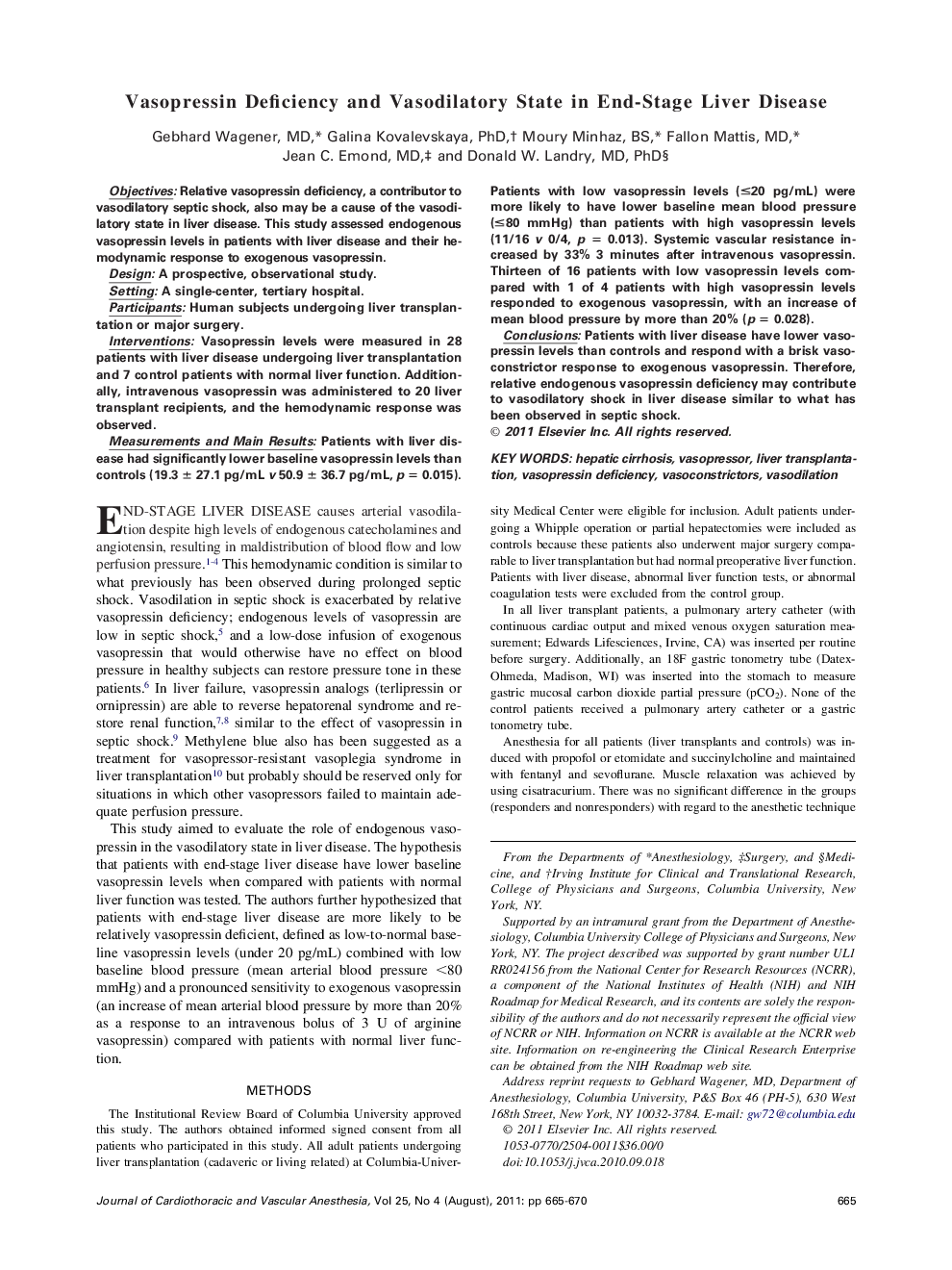| Article ID | Journal | Published Year | Pages | File Type |
|---|---|---|---|---|
| 2759943 | Journal of Cardiothoracic and Vascular Anesthesia | 2011 | 6 Pages |
ObjectivesRelative vasopressin deficiency, a contributor to vasodilatory septic shock, also may be a cause of the vasodilatory state in liver disease. This study assessed endogenous vasopressin levels in patients with liver disease and their hemodynamic response to exogenous vasopressin.DesignA prospective, observational study.SettingA single-center, tertiary hospital.ParticipantsHuman subjects undergoing liver transplantation or major surgery.InterventionsVasopressin levels were measured in 28 patients with liver disease undergoing liver transplantation and 7 control patients with normal liver function. Additionally, intravenous vasopressin was administered to 20 liver transplant recipients, and the hemodynamic response was observed.Measurements and Main ResultsPatients with liver disease had significantly lower baseline vasopressin levels than controls (19.3 ± 27.1 pg/mL v 50.9 ± 36.7 pg/mL, p = 0.015). Patients with low vasopressin levels (≤20 pg/mL) were more likely to have lower baseline mean blood pressure (≤80 mmHg) than patients with high vasopressin levels (11/16 v 0/4, p = 0.013). Systemic vascular resistance increased by 33% 3 minutes after intravenous vasopressin. Thirteen of 16 patients with low vasopressin levels compared with 1 of 4 patients with high vasopressin levels responded to exogenous vasopressin, with an increase of mean blood pressure by more than 20% (p = 0.028).ConclusionsPatients with liver disease have lower vasopressin levels than controls and respond with a brisk vasoconstrictor response to exogenous vasopressin. Therefore, relative endogenous vasopressin deficiency may contribute to vasodilatory shock in liver disease similar to what has been observed in septic shock.
